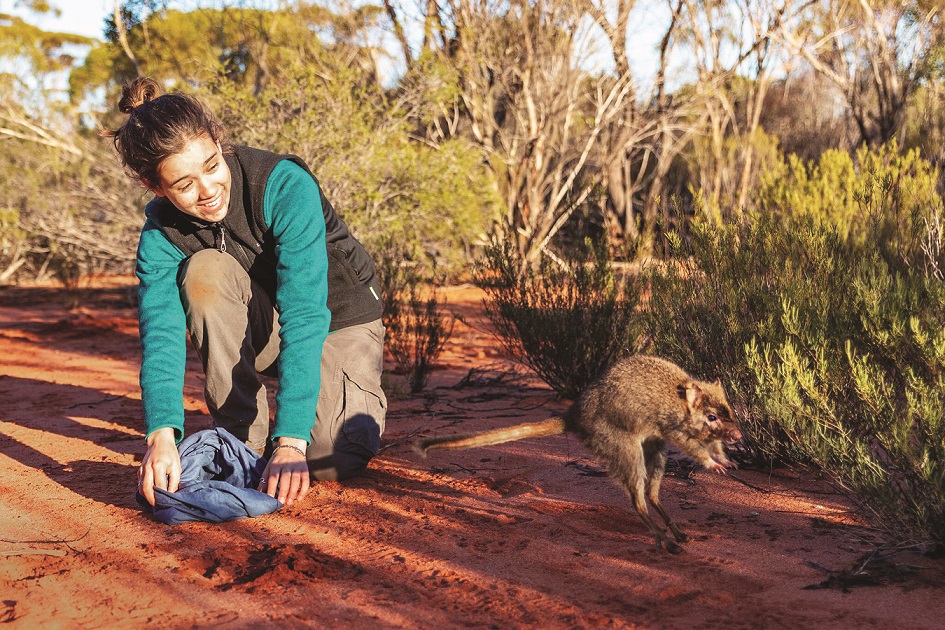By Dr Hannah Sheppard-Brennand, Science Communicator
Australian Wildlife Conservancy is committed to the long-term delivery of science-based conservation. In 2008, armed with a vision to train the next generation of talented conservation scientists and crucial seed funding from a generous AWC supporter, Ross Knowles, AWC established a scientific internship program.
Twelve years later, this comprehensive program is world-leading, providing a new template for training excellence in conservation science and giving talented young ecologists good quality, hands-on field experience. By the end of 2020, 99 AWC interns will have graduated from this program – many of them (62 per cent) going on to work for AWC permanently or under contract, while others are building careers in conservation elsewhere in Australia and around the world.
AWC is a science-based organisation and our on- ground actions – from fire management to feral animal control to mammal reintroductions – are informed by rigorous research. Our ecologists undertake an extensive terrestrial biodiversity monitoring program, (in 2019, it involved over 160,000 trap nights), underpinned by AWC’s innovative Ecohealth framework for measuring ecosystem change.
Through involvement in our science program, interns experience the challenges of real-world conservation and participate in projects covering a diversity of unique ecosystems and environments across AWC’s national network of properties. These projects have ranged from reintroducing Bridled Nailtail Wallabies (Onychogalea fraenata) into NSW national parks, to studying feral cat ecology outside the fence at Mt Gibson, to conducting the first biodiversity surveys of Bullo River Station. Interns are mentored by skilled AWC ecologists with master’s or PhD qualifications, learning fieldwork techniques including trapping, surveying, GPS-tracking and animal handling.
Internships are usually four to six months in duration, with more than 200 applicants competing for the 12 to 14 sought-after positions. This year, COVID-19 saw the positions reduced to just five placements, but we hope to be able to return these numbers back to a dozen in 2021. AWC actively recruits interns and, to date, 16 per cent of graduates have gained permanent employment and 46 per cent have gained further contract work with AWC.
 © Jane Palmer/AWC
© Jane Palmer/AWC
The 2020 intern for the south-west region, Amelia Catterick-Stoll, completed her internship in July. Amelia holds a strong connection to the south-west having volunteered in the region for many years. When discussing her internship, Amelia lists the excitement of unexpectedly trapping a juvenile Bilby (Macrotis lagotis) during Red-tailed Phascogale (Phascogale calura) surveys, and carrying out Brush-tailed Bettong (Woylie, Bettongia penicillata) surveys with the whole AWC south-west team as her most memorable experiences.
Amelia adds, “it was excellent to see first-hand how well threatened species are doing at Mt Gibson and to have the opportunity to learn from a hard-working and experienced team of ecologists.”
Amelia is now finishing her master’s degree, specialising in conservation biology, and has already gained her first paid contract with another conservation organisation, assisting in the coordination of a sea turtle monitoring program.
Rigorous scientific monitoring and research underpins AWC’s mission to provide effective conservation for all Australian animals and the habitats in which they live. Training the next generation of conservation leaders is an essential component of AWC’s strategy for securing Australia’s biodiversity and future-proofing science-based conservation.
Read and download this full issue of Wildlife Matters here.
Help us train of the next generation of conservationists